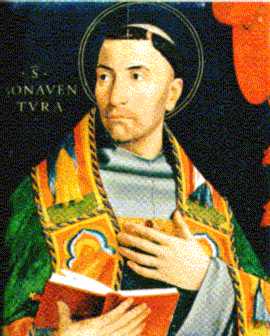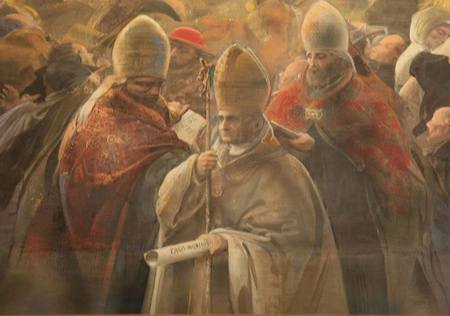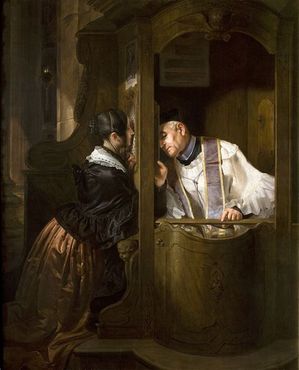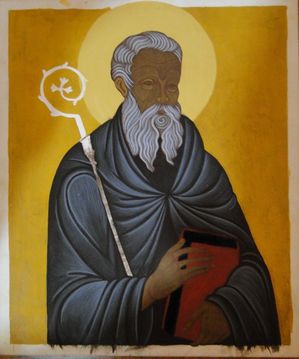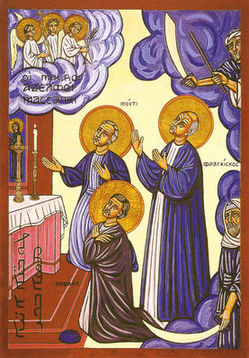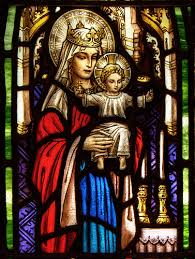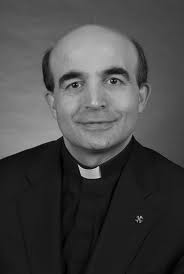One of the famous works of Saint Bonaventure’s is his Journey of the Mind to God. You see it in many places for those wanting a glimpse into this significant medieval thinker. It was in the Roman Divine Office of Readings. We always need an insight or two into contemplation, what it means, how it exists, and so forth. There is no exhausting one’s search into understanding mystical prayer.
I want you to listen to Veronica Scarisbrick’s interview with Franciscan Father Rick S. Martignetti who works in Rome and has authored of Saint Bonaventure’s Tree of Life: Theology of the Mystical Journey (Grottaferrata, 2004). It is a study of Bonaventure’s understanding on prayer and life in the paschal mystery. I found Scarisbrick’s interview both delightful and helpful.
Christ is both the way and the door. Christ is the staircase and the vehicle, like the throne of mercy over the Ark of the Covenant, and the mystery hidden from the ages. A man should turn his full attention to this throne of mercy, and should gaze at him hanging on the cross, full of faith, hope and charity, devoted, full of wonder and joy, marked by gratitude, and open to praise and jubilation. Then such a man will make with Christ a pasch, that is, a passing-over. Through the branches of the cross he will pass over the Red Sea, leaving Egypt and entering the desert. There he will taste the hidden manna, and rest with Christ in the sepulchre, as if he were dead to things outside. He will experience, as much as is possible for one who is still living, what was promised to the thief who hung beside Christ: Today you will be with me in paradise.
For this passover to be perfect, we must suspend all the operations of the mind and we must transform the peak of our affections, directing them to God alone. This is a sacred mystical experience. It cannot be comprehended by anyone unless he surrenders himself to it; nor can he surrender himself to it unless he longs for it; nor can he long for it unless the Holy Spirit, whom Christ sent into the world, should come and inflame his innermost soul. Hence the Apostle says that this mystical wisdom is revealed by the Holy Spirit.
If you ask how such things can occur, seek the answer in God’s grace, not in doctrine; in the longing of the will, not in the understanding; in the sighs of prayer, not in research; seek the bridegroom not the teacher; God and not man; darkness not daylight; and look not to the light but rather to the raging fire that carries the soul to God with intense fervour and glowing love. The fir is God, and the furnace is in Jerusalem, fired by Christ in the ardour of his loving passion. Only he understood this who said: My soul chose hanging and my bones death. Anyone who cherishes this kind of death can see God, for it is certainly true that: No man can look upon me and live.
Let us die, then, and enter into the darkness, silencing our anxieties, our passions and all the fantasies of our imagination. Let us pass over with the crucified Christ from this world to the Father, so that, when the Father has shown himself to us, we can say with Philip: It is enough. We may hear with Paul: My grace is sufficient for you; and we can rejoice with David, saying: My flesh and my heart fail me, but God is the strength of my heart and my heritage for ever. Blessed be the Lord for ever, and let all the people say: Amen. Amen!
(Cap. 7,1 2.4.6: Opera Omnia, 5, 312-313)
